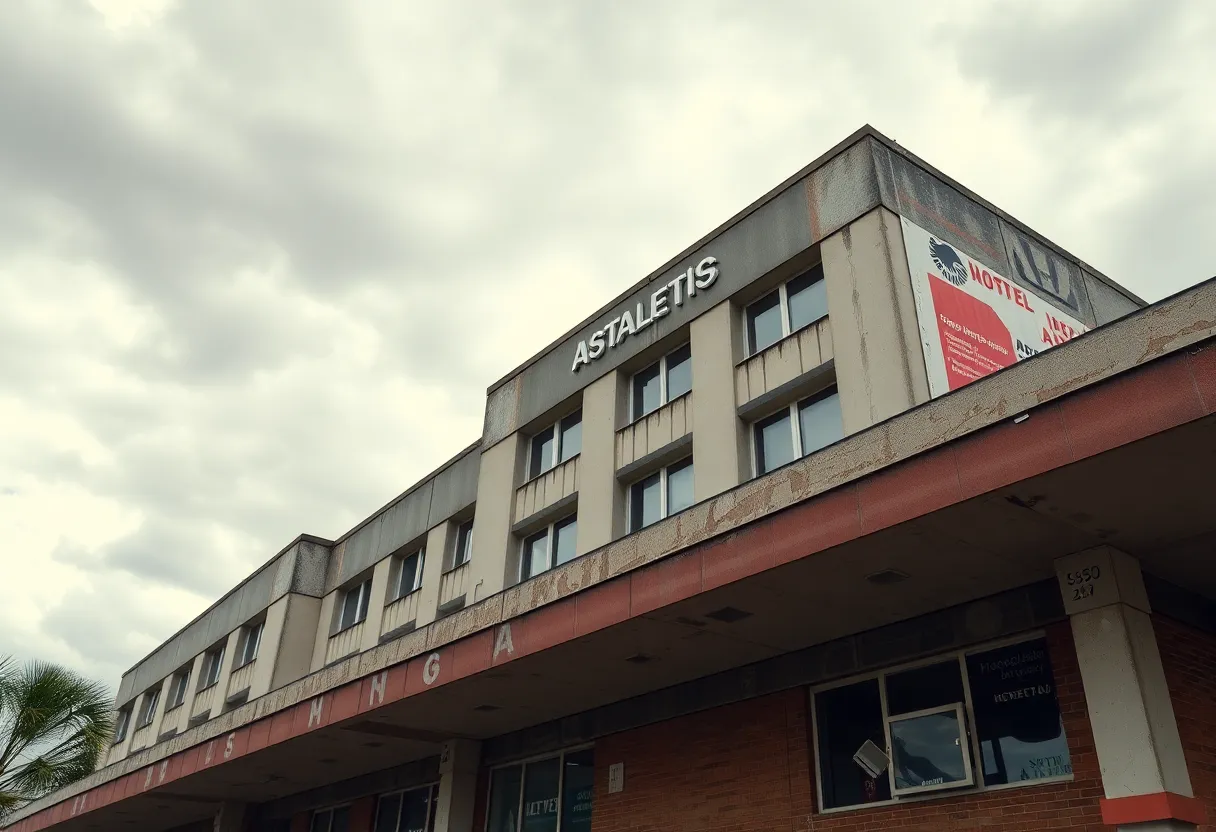News Summary
Wycombe Hospital is facing renewed scrutiny over asbestos exposure after revelations of hazardous materials dating back to its 1960s construction. The ongoing health risks connected to asbestos have alarmed the local community, especially following the tragic case of a former nurse who succumbed to mesothelioma. As questions arise about transparency and safety protocols, residents are calling for immediate action and systemic change to protect current and future patients from the dangers of asbestos.
Asbestos Concerns Resurface at Wycombe Hospital Amidst Ongoing Health Risks
As the UK grapples with its evolving health landscape, troubling revelations about asbestos exposure at Wycombe Hospital have sparked serious concerns within the local community. Built in the 1960s, the hospital has been confirmed to harbor asbestos in various locations, including corridors and maintenance areas, raising alarms for current and former staff who may unknowingly have been exposed to this dangerous material.
The Legacy of Asbestos
Asbestos was a widely used construction material until it was banned due to its serious health risks, including mesothelioma, a notoriously aggressive cancer linked to exposure. Documentation has surfaced confirming the presence of different types of asbestos, including crocidolite (blue asbestos) within Wycombe Hospital. Specifically, reports dating back to 1979 have detailed its existence in critical areas like the hospital’s boiler house and oil storage room, underscoring the ongoing disregard for safety precautions.
Jemima Abraham’s Heart-Wrenching Case
The tragic story of Jemima Abraham, a former intensive therapy unit nurse at Wycombe Hospital, has brought the issue of asbestos exposure into stark focus. Following her diagnosis with stage four sarcomatoid mesothelioma, a condition hounded by agonizing symptoms, she succumbed to the disease in May 2019. This heartbreaking loss has left her daughters demanding accountability and transparency concerning the hospital’s asbestos practices.
Concerns have been raised about the hospital trust’s management of asbestos risks, particularly as family members suspect that Jemima’s late husband, Robert, who worked in maintenance, may have faced similar risks. The danger was further heightened as durable asbestos fibers were potentially carried home, jeopardizing the health of those around him.
Health Implications and Community Response
Asbestos fibers, while stable when intact, can become lethally airborne if disturbed, posing a significant risk of exposure to hospital staff and visitors who may not be aware of the lurking danger. The Buckinghamshire Healthcare NHS Trust has claimed to have established “robust processes” to manage these risks, but critical voices in the community question—are these measures sufficient?
The Local Democracy Reporting Service sought access to the trust’s asbestos management documents but was met with resistance, raising eyebrows and intensifying scrutiny regarding the transparency of safety protocols. A visit from individuals suspecting links between the hospital and their own family’s asbestos-related diseases has only compounded the calls for greater accountability.
Changing Landscape of Local Health Services
Compounding the distress over asbestos concerns, Wycombe Hospital has recently transitioned its emergency services, calling into question the available care options for local patients. Emergency cases from south Buckinghamshire will now find themselves redirected to Stoke Mandeville or Slough, leaving residents anxious about their access to healthcare.
While efforts are underway to enhance patient outcomes, disruptions in local health services add a layer of anxiety, particularly as families continue to grapple with the legacy of unsafe working conditions, culminating in life-altering health effects.
A Call for Action
The devastating experiences surrounding asbestos exposure have ignited a community response demanding immediate action and systemic change. With the legacy of building practices continuing to affect lives, it has become clear that the past cannot be buried under layers of paperwork and silence. Transparency regarding asbestos management, alongside thorough health oversight, is not just advisable; it is essential for safeguarding current generations.
As public health remains a point of concern across the nation, the unfolding story at Wycombe Hospital serves as a stark reminder of the real implications of historical negligence. What the community needs now is not just promises of “robust” safety but actions to ensure that future tragedies can be prevented.
Deeper Dive: News & Info About This Topic
HERE Resources
Tragic Loss: Woman Dies from Mesothelioma Possibly Linked to Asbestos Exposure



















